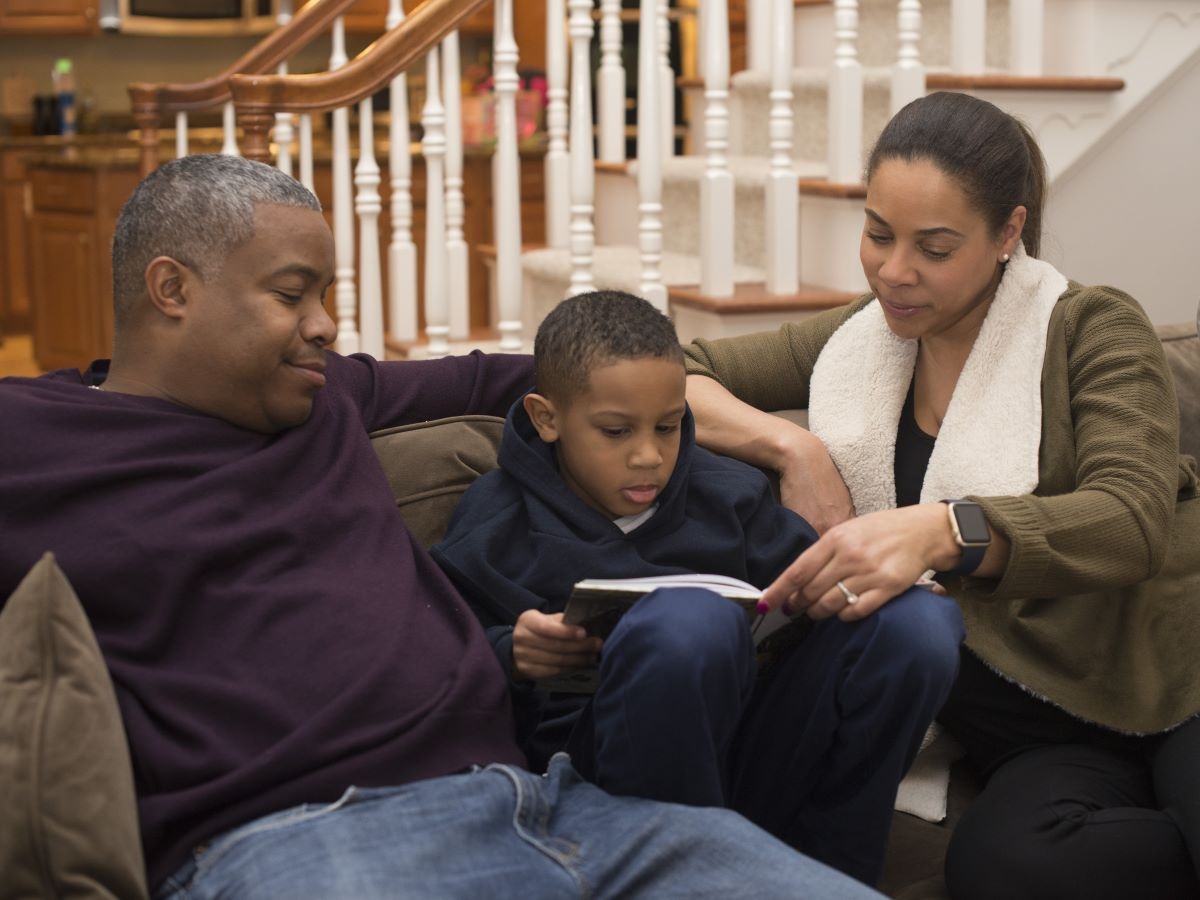October is Dyslexia Awareness Month. As with many learning disabilities, there can be a lot of confusion and misunderstanding around what dyslexia is and how best to support learners who are struggling to read. Folks at the library are here to help students and their caregivers explore books and resources to better understand what is going on when a student is struggling to read and what is the most helpful for those students.
Learning to read builds upon and brings together many skills. To read, a person has to have a good understanding of the English language (language comprehension), they have to know the sounds the letters on the page make when spoken (decoding or phonics) and they have to combine these skills smoothly and quickly enough to understand what they are reading (fluency). According to experts such as Maryanne Wolf, author of Proust and the Squid, weaknesses in any number of those skills can contribute to what we call dyslexia. The most frequently seen challenges for those with dyslexia are fluency and phonics. All children learning to read are helped out from explicit phonics instruction as part of their ELA classes and those with dyslexia can benefit the most.
If a parent or caregiver is looking for something to practice phonics at home, the Free Library offers decodables. Decodables are a type of early reading children’s book, usually available in a set, that allows students to practice phonics skills by starting with easier words to read before slowly adding words with harder phonics concepts. One classic series of decodable books is Bob Books, now available in hardback. We also have the Flip-a-Word series and Meg and Greg at many locations. For digital resources the Reading House series is available on Libby and Phonics Fun Decodables is available on Comics Plus. We are still adding decodables to the collection. Be on the lookout for Capstone Stairway Decodables which will be available at all Free Library locations soon.
Speaking of books, we at the Library believe every child has a right to read, regardless of a reading disability. As Wolf puts it "Children with any form of dyslexia are not ‘dumb’ or ‘stubborn’; nor are they ‘not working to their potential’ … It is vital for parents and teachers to work to ensure that all children with any form of reading problem receive immediate, intensive intervention." The Individuals with Disabilities Education Act gives legal support to children struggling with dyslexia. Every child is entitled to a free and appropriate education. Interventions and accommodations for specific learning disabilities such as dyslexia are included in that free public education.
The School District of Philadelphia uses the STAR reading assessment to screen all children in K–2 to guide reading instruction and identify students struggling to learn. This type of universal screening is supposed to help identify dyslexia early so students can get access to intensive intervention as soon as possible. However, if a parent sees that their student is struggling they can request an assessment at any time. As Kelli Sandman-Hurley puts in Dyslexia Advocate! “A person born with dyslexia … will not outgrow it, but with the correct intervention they will improve their reading and writing.” She further states, “A child with dyslexia needs a structured, multisensory, explicit intervention.” Two well-known intervention approaches that meet those needs are Orton Gillingham and Structured Word Inquiry.
In addition to interventions, many people with dyslexia benefit from accommodations as part of their individualized education plan. Accommodations are things that help learners complete tasks and learn better. An example could be being allowed to use spell-check software for a writing assignment. Library staff will try our best to help folks find the resources and materials that match their needs. In addition to decodables, we also have books and materials that can provide accommodations. One type of book that can accommodate people with dyslexia is audiobooks. The Free Library has several books that include built-in chargeable audiobooks, often referred to by the name of their most well-known product, Wonderbooks. These read-a-longs can be found for picture books, easy readers, early chapter books, chapter books, comics, nonfiction books, and even books in Spanish. These books are available to all children, not just students with a diagnosed learning disability.
If a child does have dyslexia or other learning disabilities they can be eligible to sign up for services from the Library of Accessible Media for Pennsylvanians or LAMP. Located at 1500 Spring Garden Street, LAMP circulates over 1.5 million titles in accessible formats like digital and braille, large-print, and audio-described DVDs to Pennsylvanians. They also provide access to materials from National Library Services for the Blind and Print Disabled. One of the most popular formats with children and teens is BARD, the digital audiobook program, which allows for downloading and playing off of personal devices such as phones or tablets. LAMP also has digital audiobook players that they lend out as well. For more information check out LAMP’s website.
Although dyslexia is a lifelong condition, children do not need to spend their lives struggling to read. With proper support and accommodations, we can welcome everyone into the wonderful world of reading. Even for adults who continue to struggle, interventions and accommodations are available. LAMP services adults as well as children. For adults looking for literacy classes, they can reach out to the library workers at the Languages and Learning Center.
No matter the age, no matter the conditions, all learners are welcome at the Library!
Have a question for Free Library staff? Please submit it to our Ask a Librarian page and receive a response within two business days.

